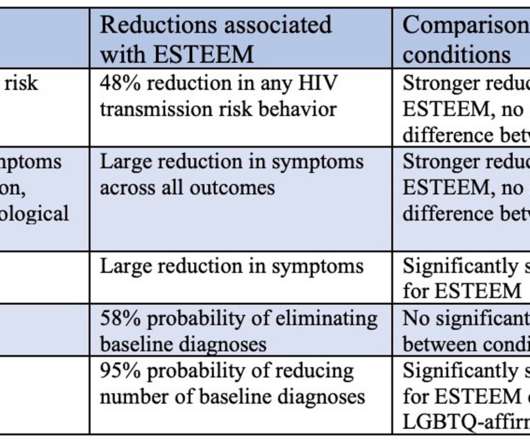The Promise of Data Informed Patient-Therapist Matching: Context Matters
Society of Clinical Psychology
MAY 24, 2022
It may come as no surprise to patients and therapists to hear that the therapist matters when it comes to the quality of psychotherapy. Findings from psychotherapy outcome research have “caught up” to anecdote and patient and therapist intuition. What Do We Think We Know about Therapist Differences?




















Let's personalize your content